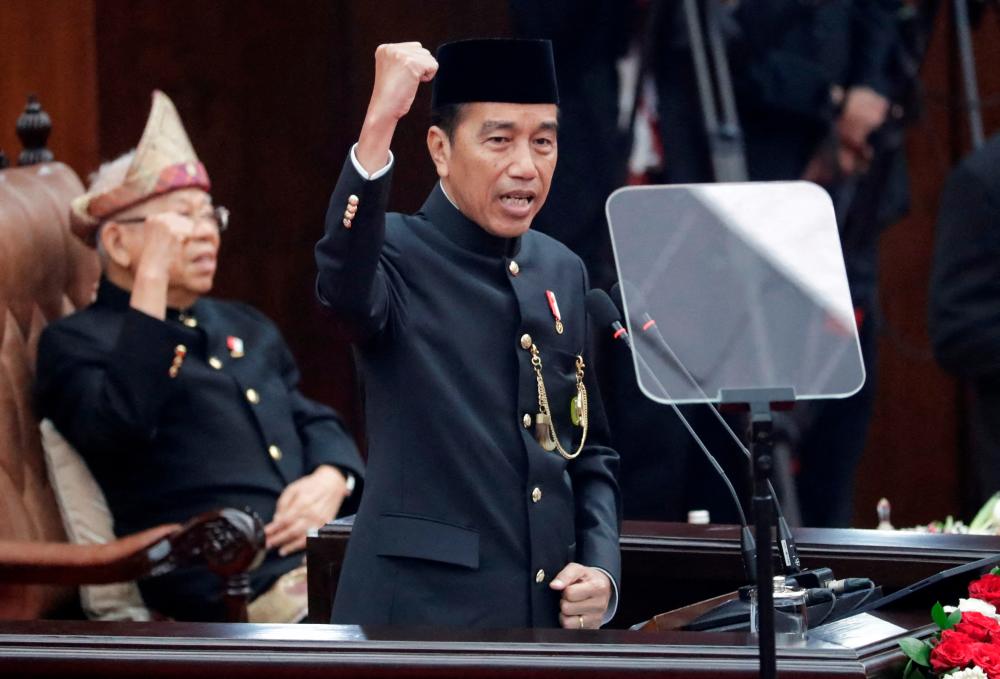JAKARTA: Protests are planned in Indonesia on Thursday as parliament looks to annul changes to election laws made by the constitutional court, a reversal that could further strengthen the political influence of outgoing President Joko Widodo.
The parliament’s plan to unwind this week’s court rulings would block a vocal government critic in the race for the influential post of Jakarta governor, and also pave the way for Widodo’s youngest son to run in elections in Java this November.
The power struggle between the parliament and the judiciary comes amid a week of dramatic political developments in the world’s third-largest democracy, and in the final stretch of the president’s second term.
Widodo downplayed the concerns, saying on Wednesday the court ruling and parliamentary deliberations were part of the standard “checks and balances” of government.
But legal experts and political analysts have described the events as bordering on a constitutional crisis.
Elections analyst Titi Anggraini characterised the manoeuvre as “constitutional insubordination” that had the potential to stir unrest.
The political manoeuvres have sparked a wave of criticism online, with blue posters featuring the words “Emergency Warning” above Indonesia’s symbolic national eagle shared widely on social media.
Protests are planned outside the parliament in Jakarta and also in the cities of Surabaya and Yogyakarta on Thursday, with police deploying 3,000 personnel in the capital, according to media reports.
‘THIS IS A POWER STRUGGLE’
On Tuesday the Constitutional Court revoked a minimum threshold requirement to nominate candidates in regional elections and kept the minimum age limit of 30 years for candidates.
That ruling effectively blocks the candidacy of the president’s 29-year-old son Kaseang Pangarep from contesting the race for deputy governor in Central Java, and would allow Anies Baswedan, the current favourite, to run in Jakarta.
But within 24 hours the parliament had tabled an emergency revision to annul the changes, which it is expected to ratify on Thursday, said legislator Luluk Hamidah.
All parties except one, the Democratic Party of Struggle (PDI-P), have agreed to the revision of the law.
“Indonesian democracy is once again at a crucial crossroads,“ Anies posted on social media platform X, urging legislators to remember its fate rested in their hands.
The parliament is now dominated by a big-tent coalition aligned to the outgoing president, popularly known as Jokowi, and president-elect Prabowo Subianto.
Prabowo, who won a landslide victory in February’s elections, will be inaugurated on Oct. 20, with Jokowi’s eldest son, Gibran Rakabuming Raka, as his vice president.
Jokowi is facing mounting criticism for the increasingly bold ways his government is consolidating power, and over the creation of his own political dynasty.
“The ruling of the constitutional court is final and binding,“ said Bivitri Susanti, from the Jentera School of Law,
“It is not possible for the legislative body to violate the judiciary’s ruling. This is a power struggle.”
First elected in 2014, Jokowi was at the time hailed as a democratic hero, in large part because he was seen as untethered from the country’s entrenched oligarchy and military elite.
The president has been praised for his solid economic record but increasingly criticised for the democratic decline of the country’s institutions, such as the courts and anti-corruption body, that has occurred during his decade in office.









